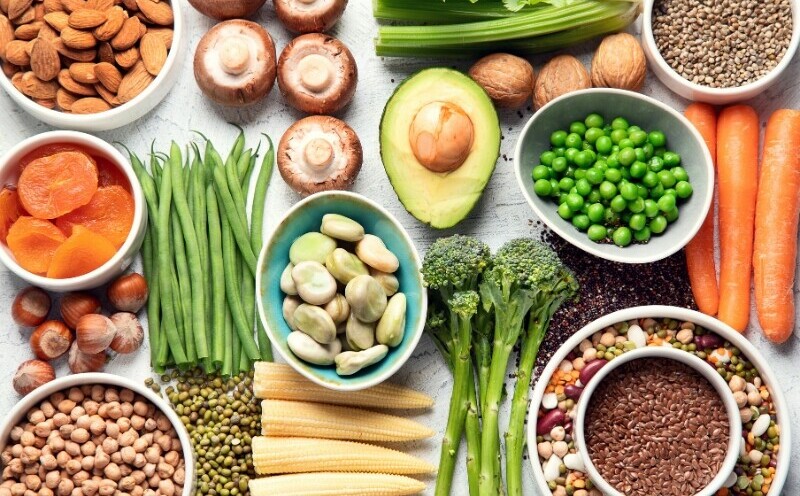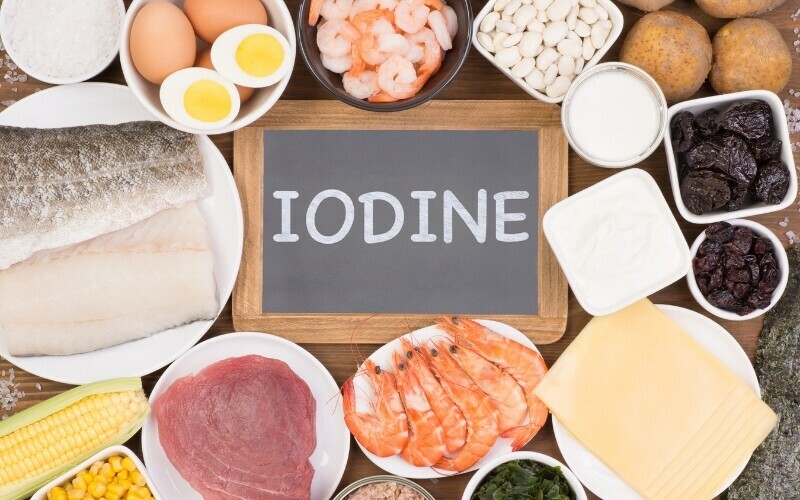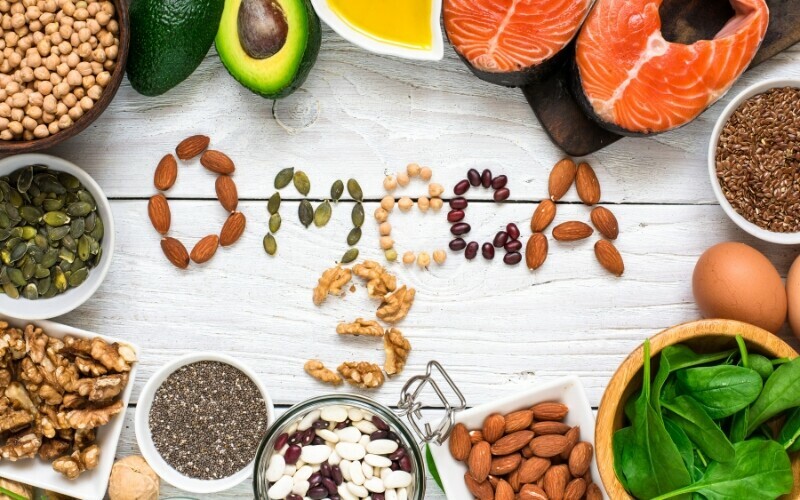Embracing a plant-based diet isn’t just a culinary choice; it’s a journey toward a healthier, more energetic lifestyle. The health benefits of eating a plant-based diet goes far beyond the dinner table.
Imagine indulging in a symphony of colors on your plate – from leafy greens to vibrant berries – each bite contributing to a powerhouse of vitamins, minerals, and antioxidants. A plant-based diet has been linked to lower risks of chronic diseases like heart disease, diabetes, and certain cancers. It’s a strategic, yet cost-effective investment in your long-term health.
Benefits of a Plant-Based Diet
But it’s not just about what you avoid; it’s about what you gain. Plant-based diets can be rich in fiber, promoting gut health and aiding digestion. They’re a secret weapon against inflammation, the silent culprit behind many health woes. Plus, increased energy levels, clearer skin, and a potential boost to your mood.
So, whether you’re a seasoned plant-based pro or just entering into the plant-based world, get ready for a tasty adventure with benefits that extend far beyond the plate. Your body will thank you, one delicious plant-based meal at a time!
A plant-based diet has been associated with various health benefits, and here are several reasons why it is considered a healthy dietary choice:
Health Benefits of Eating a Plant-Based Diet
Plant-based diets are typically high in vitamins, minerals, antioxidants, and fiber. These essential nutrients contribute to overall health and can help prevent deficiencies.

Heart Health:
Plant-based diets have been linked to a lower risk of heart disease. They are naturally low in saturated fats and cholesterol, and the high fiber content helps lower blood cholesterol levels.
Weight Management:
Plant-based diets are often associated with weight management and can be effective for weight loss. The emphasis on whole, nutrient-dense foods can help control calorie intake.
Lower Blood Pressure:
Studies suggest that plant-based diets may contribute to lower blood pressure. The potassium-rich foods found in plant-based diets can help counteract the effects of sodium on blood pressure.
Improved Blood Sugar Control:
Plant-based diets may help in better blood sugar control, making them beneficial for individuals with diabetes or those at risk of developing diabetes.
Reduced Risk of Certain Cancers:
Some studies suggest that a plant-based diet may be associated with a lower risk of certain types of cancers, particularly colorectal cancer. Antioxidants and phytochemicals found in plant foods may play a role in cancer prevention.
Digestive Health:
The fiber content in plant-based diets promotes healthy digestion and regular bowel movements. It can help prevent constipation and contribute to a healthy gut micro-biome.
Anti-Inflammatory Properties:
Often associated with anti-inflammatory effects, plant-based diets help reduce chronic inflammation which is linked to various diseases. A diet rich in fruits, vegetables, and whole grains may help mitigate inflammation.
Improved Longevity:
Some studies suggest that a plant-based diet may be associated with increased life expectancy. The combination of various health-promoting factors contributes to overall well-being and longevity.
Environmental Sustainability:
In addition to personal health benefits, a plant-based diet is often considered more environmentally sustainable. It requires fewer resources such as water and land, and it generates fewer greenhouse gas emissions compared to a diet heavy in animal products.
Nutrient Intake:
Planning a well-balanced plant-based diet is important to ensure you get all the necessary nutrients for optimal health.
It’s important to note that a well-balanced plant-based diet requires careful attention to nutrient intake, particularly for nutrients like vitamin B12, iron, calcium, and omega-3 fatty acids.
If you are considering adopting a plant-based diet, you should ensure that you get a variety of foods to meet your nutritional needs. Consulting with a healthcare professional or registered dietitian can provide personalized guidance.
How to Start on a Plant-Based Diet
Some things to keep in mind to have a healthy plant-based diet.
Variety is Key:
Consume a wide variety of fruits, vegetables, whole grains, legumes, nuts, and seeds to ensure you get a broad spectrum of nutrients.
Oranges, apples, peas, and carrots all add color to your plate. Keep your plate colorful to ensure you are getting a wide range of nutrients in your diet.

Protein Sources:
With planning you can include healthy, plant-based proteins into your diet. It is possible to exclude meat from your diet and still eat unhealthy potato chips, pastries, and other snacks. Choose a healthy plant-based diet.
Choose a variety of plant-based protein sources such as beans, lentils, chickpeas, tofu, tempeh, quinoa, nuts, and seeds will help ensure you get all the essential amino acids.
Calcium Intake:
Plant-based sources of calcium include leafy green vegetables (kale, Bok choy), fortified plant milks (almond, soy, rice), and tofu. Make sure to incorporate these into your diet for healthy bones and teeth.
Broccoli, Brussel sprouts, collards, kale, mustard greens, and other greens are loaded with highly absorbable calcium and a host of other healthy nutrients. However, spinach, beet greens, and Swiss chard, while they contain lots of calcium, they are also high in oxalates which bind to calcium and reduce how much of it is absorbed so they should be eaten in moderation.
Iron Absorption:
Plant-based iron (non-heme iron) is not as easily absorbed as iron from animal sources. To enhance absorption, consume vitamin C-rich foods (citrus fruits, bell peppers) with iron-rich foods (beans, lentils, dark leafy greens).
Vitamin B12 Supplementation:
Vitamin B12 is primarily found in animal products, so it’s essential for those on a plant-based diet to consider B12 supplementation, also, consume plant-based milk, cereals, and other foods that are fortified with vitamin B12.

Iodine Sources:
Iodine is considered an essential mineral for our bodies. It plays an important role in the health of your thyroid, and helps regulate hormone production that controls your metabolism, heart health, and more.
Iodine is mainly found in seafood and dairy. Sea vegetables (like seaweed) and iodized salt are plant-based sources. For this reason, it’s important to be mindful of your iodine intake.
Fiber-Rich Foods:
Plant-based diets are generally high in fiber, which is beneficial for digestive health. Ensure you’re getting enough whole grains, fruits, vegetables, and legumes to meet your fiber needs. Stay hydrated when consuming a high-fiber diet to keep a happy digestive system.
Beans and legumes as well as fresh fruit and vegetables are good sources of fiber and important vitamins and minerals in your diet. Chickpeas, quinoa, tempeh, lentils, beans, and nuts provide fiber and are all excellent options to help round out a plant-based diet.
Omega-3 Fatty Acids:
An essential part of every diet are omega-3 fatty acids. They are known to reduce blood triglycerides, reduce inflammation, and even protect against dementia.
Include plant-based sources of omega-3 fatty acids such as flaxseeds, chia seeds, hemp seeds, walnuts, and algae-based supplements. Omega 3 supplements are available.

Monitor Nutrient Levels:
Consider regular check-ups and monitoring of nutrient levels, especially if you’ve recently transitioned to a plant-based diet. This can help identify any potential deficiencies early on.
Hydration:
Drink plenty of water throughout the day to stay hydrated. Water is essential for various bodily functions and can contribute to overall well-being.
Drinking enough water is important to everyone, however, it is especially important for those who are eating a lot of fiber in their diet because it can help fiber move through the digestive tract to prevent issues like gas, bloating, and constipation. Spread your water intake throughout the day to stay hydrated.
Plan Meals:
Plan your meals to ensure you’re meeting your nutritional needs. This can help you avoid relying on a narrow range of foods and missing out on essential nutrients.
Meal planning can make it easier for you to maintain a balanced and nutritious diet. When traveling, it is especially a good idea to plan out your meals in advance.
Each week try to cook some healthy, delicious plant-based meals on your own.
Educate Yourself:
Stay informed about plant-based nutrition to make informed food choices. There are many resources, books, and websites that provide valuable information on how to maintain a balanced plant-based diet.
Remember, individual nutritional needs can vary, so it’s a good idea to consult with a healthcare professional or a registered dietitian, especially if you have specific health concerns or dietary restrictions.
The Health and Nutrition of a Plant-Based Diet
In conclusion, embracing a plant-based diet isn’t just a culinary choice; it’s a journey toward a healthier, more energetic lifestyle.
The health benefits of eating a plant-based diet goes far beyond the dinner table, it includes heart health, weight management, good nutrition, and better blood sugar control.
With a bounty of antioxidants and fiber, it aids in preventing chronic diseases like heart disease, diabetes, and certain cancers, as well as promoting digestive wellness.
Health Benefits of Eating a Plant-Based Diet
It is not just a boon for your personal well-being, but a plant-based lifestyle also champions environmental sustainability.
So, whether you’re aiming for longevity, improved vitality, or contributing to a healthier planet, a plant-based diet is a delicious and nutritious choice.
Remember, variety is key—explore the rainbow of fruits, veggies, and whole grains for a thriving, well-balanced life.
Disclaimer: If you have any concerns or questions about your health, you should always consult with a physician or other healthcare professional. No content on this site should be substituted for direct medical advice from your doctor or other qualified healthcare practitioner. The information contained here is for informational purposes only. It is from my research and personal experience.
Related Posts
The Best Foods to Burn Belly Fat
5 Things You Should Understand on a Food Label
How to Fit Chia Seeds into Your Everyday Diet
What Are the Benefits of Flaxseed?

